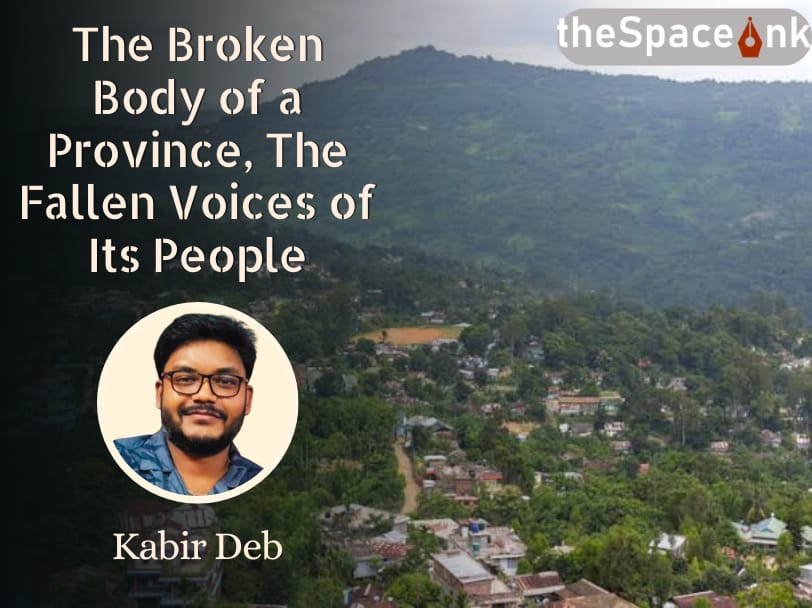It was a while ago that a mainstream news portal in the country still tenuously holding on to the name ‘India’ asked me to explain academic plagiarism to a lay audience. The question had arisen because a self-anointed Veer (the Hindi term for ‘brave’), the brave and fearless founder of ‘Chaddistan’, that part of the country once known as India that apparently belongs exclusively to Hindus, had had a biography written about him by a third party. Or shall we say a fifth party? Because after the brave man who had declared himself to be Veer had had a biography written about him by a man with a doctorate in engineering masquerading as an historian with the collusion of two historians and a British professional association, there were a third and a fourth party who accused him of plagiarising their work. These parties were supported by members of the profession of historians, who detailed what the fifth party had stolen from the third and fourth parties, and attempted to plead with the professional association to disassociate themselves from the fifth party, whom they had allegedly mistakenly admitted to their association because of the collusion of the two historians with impeccable Oxbridge credentials (let’s call them the sixth and seventh parties) who had, inadvertently or deliberately, misled the association. In this misleading enterprise, they were joined by a former Harvard historian (we can agree to call him the eighth party) who had allegedly, along with the sixth party, written good things about the plagiarised book about the dead Veer without having read it.
It goes without saying that all but the professional association, which according to the story had been innocently duped, were associated with that country that exists somewhere in the liminal space between India and ‘Chaddistan’.
Now this, the editor of the mainstream news portal reasoned, would be confusing for the average reader to follow. It was less important, it seemed, that the self-appointed Veer had found more people to carry out propaganda for his posthumous self and his post-humorous latter-day colleagues, and more important that the most recent propagandist’s plagiarism, and the principals and principles involved, were explained to an audience of concerned non-academics. For, after all, if we can’t trust academics, the keepers of the flame of authentic knowledge, even if they made up their credentials in the first place, who can we trust?

I didn’t write the piece. One of the reasons I didn’t was that a number of contributors to the said mainstream news portal were, to my mind, guilty of similar crimes against knowledge. And my mind went back to a similar case a little earlier, when a book published by a major university press was deemed by a reviewer to have been plagiarised from a student’s PhD thesis; the said student’s PhD had been examined by the author, who could therefore not plausibly claim that he had not read it and had come independently to similar material and conclusions; and since the student had by then disappeared into the world of activism, his examiner had decided that the work could be lifted. Once the reviewer made the charge of plagiarism, of course (and the charge verified outside the public domain by others who had read both the book and the PhD it had drawn from), the author of the book for the university press, better connected than an obscure student from an ‘anti-national’ Indian university, mobilised domestic and world opinion in his favour. (It didn’t help his case among the cognoscenti that an earlier publisher of his had caught him plagiarising before: one of the publisher’s staff had had access to the anti-plagiarism software that students are subjected to at most proper universities, and the author failed to meet the basic standards to which, presumably, he held his hapless students.) Among his supporters was a famous Yale professor who, in order to endorse the innocence of his colleague, should have, in the interests of due diligence, read the PhD of the student whose work had been plagiarised. Several others supported him in public because they knew him, and not necessarily because they’d read his work or that of the student in question.
my mind went back to a similar case a little earlier, when a book published by a major university press was deemed by a reviewer to have been plagiarised from a student’s PhD thesis; the said student’s PhD had been examined by the author, who could therefore not plausibly claim that he had not read it and had come independently to similar material and conclusions; and since the student had by then disappeared into the world of activism, his examiner had decided that the work could be lifted.
Lest this might seem to be a set of stories pandering to the exceptionalism claimed for ‘India’ in many ways (things happen differently there; they’re not subject to the principles of the rest of the world), let me add another story, involving concerned parties from the United States, Britain, and Germany. Germany, it might be added, has been particularly keen to strip politicians with PhDs of their degrees, if they are found to have plagiarised any part of it – not so, unfortunately, in the case of people with full professorships. The piece in which the story is told can be found by any good internet search engine, so I shall not cite it, and leave the finding of the correct citation to you, dear reader.
The historian B—– texted a colleague, O—–, after an article appeared with just the same theme and extremely similar contents to a book O—– had recently published. She responded to B quite quickly: the article had come to her for review from an important journal, she’d reviewed it and suggested that it was not original (and she had said why it wasn’t). It was duly rejected, then sent to another journal in another country by the author, S—-, which journal also sent it to her to review. She had responded to them that she’d already rejected it for another journal, and told them the reasons. The second journal published the article, probably after it had been duly sent for peer review to other reviewers. But O—– didn’t want to follow this up and make a plagiarism charge: S—– was an important professor in his own backyard (in a third country), and she might, she said, want to work in the country where he worked one day, in which case it was better to let it pass, and to rely on a public who, like B—-, might have read O—-‘s original work, and would know that S—– had lifted O—–‘s work but would, unlike B—–, but like everyone else, show sympathy to O—– and continue to allow S—– pretend in public that he was an honourable historian.
Now, as a person who has spent most of his professional and political life opposing the attempt to turn India into Chaddistan, it is of course tempting to take the first case as a matter of outrage and ignore the second and third cases, or at least click one’s tongue in private at the latter two and then look away, especially as the plagiarists in the second and third cases count in their own worlds and by implication more generally, as ‘progressive’. But this would be exactly something calculated to destroy what it is we think we are doing: to maintain verifiability, professional ethics, and integrity, without which a self-regulating profession can only destroy itself. After it has done so, the questions of ‘left’, ‘right’ and ‘centre’ can be thrown out along with the debris of what was once a profession.
What, then, is plagiarism? Here are my notes towards a preliminary set of definitions:
- The straightforward lifting of entire pieces or passages, unattributed, from another author’s writing.
- The straightforward lifting of passages, unattributed, from one or more other authors’ writing.
- The lifting of passages, unattributed, from one or more other authors’ writing, paraphrased to disguise the lifting.
- The lifting of passages from one or more other authors’ writing, attributed but unparaphrased.
The fourth category can be considered a beginner’s mistake, and contains, at least, no necessary intent to mislead. This is what most undergraduates get caught out on: they are not (or at least were not, until the invention of the paraphrase-by-computer) adept at changing the language of a complicated text; and a resort to the third category is harder to catch at first glance.
Beyond this point we’re getting more professional:
5. The passing footnote to the writing that one is lifting from, without acknowledgment that whatever follows is from that writing and is not one’s own.
6. The lifting, in whole or in part, of quotes that another author has cited from other sources, but citing the sources and bypassing the author who found the quotes.
When combined with the fifth category above, this gives the impression that the original research that has unearthed the sources from which the quotations appear was done by the plagiarist; and the actual researcher, who has been given a passing footnote, has actually been cited, so the game is a subtler one here.
7. Citation cartels: groups of academics who cite one another, even when they know that the important work to which they ought to refer is by someone outside the cartel.

By continuously reinforcing the impression that one of them has done the work and eventually having a number of other people cite one of them rather than the one who has done the original work (which was either done in the distant past, and therefore doesn’t come high up in the search engine’s results, or was done by someone lower down in the academic pecking order), the original work is eventually erased. This is built on the structure of academic professions: why cite someone who hasn’t any power to help you?
It follows then, that you cite up and plagiarise down, if you’re a professional. It also follows that plagiarism is endemic and integral to academic worlds; and that professionals plagiarise in ways that they will get away with. The sanctions against plagiarism by amateurs are among the gatekeeper functions performed by professionals; once you’re a professional, you will need to understand the rules of higher forms of plagiarism, and you and your career will live long and prosper.
Disclaimer: The views expressed in this article are the author’s and do not necessarily reflect the views of thespace.ink or its editorial team members.
Column recap:
[Iron Rules of History] [Russian Lullaby] [The Uses of Exile] [Putin & Bengali Cold War [Imperialism in One Country?] [Scratches on the Record] [The Progressive Bookseller] [The 18th Brumaire of Isaac Asimov] [Identity and Vegetables] [Straw Men] [Joys of Parochial Self-effacement] [How To Be A Person With A Voice] [Will The Woke People Please Get Out Of My Hair] [The Emperor Vanishes] [How to Write a Folk Song]
Benjamin Zachariah works at the Georg Eckert Institute for Educational Media in Braunschweig, and with the project on the contemporary history of historiography at the University of Trier. He was trained in the discipline of history in the last decade of the previous century. After an uneventful beginning to a perfectly normal academic career, he began to take an interest in the importance of history outside the circle of professional historians, and the destruction of the profession by the profession. He is interested in the writing and teaching of history and the place of history in the public domain.








